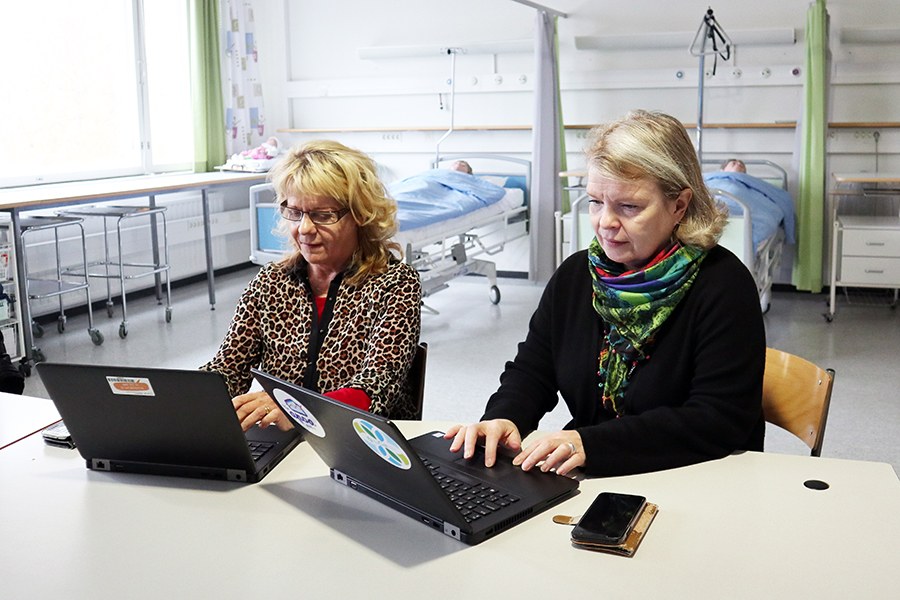TAMK develops digital nursing abroad

At the moment, digital development is very fast in health care. When health care becomes digital, it enables digital data transmission, telemedicine and remote coaching in everyday life.
”Modern nursing service models are all about increasing wellbeing technology and digitality through for example robotics. Different digital methods have to be introduced in telemedicine and nursing training. Our projects aim at developing students’ digital competence in order to provide patients with good-quality treatment remotely. We thus aim at responding to challenges of facilitating work and saving time. We also aim at solving the lack of space and lowering health care costs,” ponder DigiNurse and DigiCare Project Manager Raija Kokko and Special Expert Nina Smolander from TAMK.
Wellbeing technology becomes more and more entwined in health care and nursing professionals are already trained for the changing operating environments with curriculum, pedagogical and methodological solutions.
Digital nursing progresses in Europe and Asia
In the European DigiNurse project coordinated by TAMK, health care professionals have developed a global digital community from the viewpoint of patient self-care.
”We developed a DigiNurse model in international cooperation based on literature reviews and an extensive survey among students. The model was piloted in the partner countries and at TAMK. The model includes digital tools for teaching and learning self-care. Students and teachers use them as a part of the nursing curriculum. We have also built a cooperation network which has already been used in new projects,” Kokko tells of the project’s present-day achievements.

Supervisors and experts of the DigiNurse community can already share their experiences and best practices by means of quality digitalisation techniques of health care programmes. The project community is open for all education specialists who want to join it.
The DigiCare project focuses on Asia and development of the DigiCare model in health care education. The Asian culture is represented by Vietnam and Bangladesh and their representatives will create together their own DigiCare model for health care education. The model supports teaching and learning of self-care. The pedagogical, ethical and legal starting points of the DigiCare model differ from the European DigiNurse model. The Asian health care context and culture are different from the European operating environment. Cooperation is made between Bangladesh, Finland, Portugal and Vietnam. Earlier cooperation between the countries has been of help in this project.
An e-handbook is being prepared. It will include the most important project results, such as the DigiCare model, examples on developed health care programmes and best practices of the pilot phase. The handbook aims at facilitating adoption of digitalisation in nursing as an essential part of health care education. In the future it will be freely distributable and available for the project partners through the project and community website.
“The synergy between the DigiNurse and DigiCare projects is used in networking, cooperation and dissemination of results. There is already a web-based platform which enables more effective communication between the project participants. Huge development is taking place in multinational projects in the field of health care,” states Kokko.
Next Kokko and her working group will develop digital nursing in a new continent within the SmartNurse project.
DigiNurse: Erasmus+ Strategic Partnerships in Higher Education
DigiCare: Erasmus+ Capacity Building in the Field of Higher Education
Further information:
Raija Kokko, Project Manager, Doctor of Science (Health Care), School of Health Care and Social Services, Tampere University of Applied Sciences, tel. +358 50 3119 640, raija.kokko [at] tuni.fi (raija[dot]kokko[at]tuni[dot]fi)





